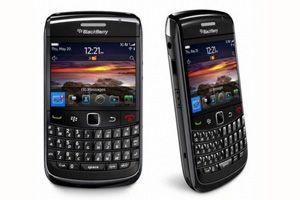Just a month after I bought a BlackBerry Curve 8900 (in 2008), I heard of the launch of the first BlackBerry Bold; the 9000. “Here goes my chance to own the new king of the BlackBerry universe”, I thought. But my regret turned into relief when I first saw the Bold. It was bigger, heavier and less sleek than the Curve. In less than a year, Bold (9700 version) shrunk in size, shed weight and started looking very similar to the Curve.
Surely, I wasn’t the only one thinking that Bold’s first version had out-reached itself in weight and size. Though Bold 9700 was a phone I would have liked to have, I still found my thinner, lighter (and cheaper) Curve a better value for money, with almost identical functionality.
 Bold’s newest variant (9780) finally brought my regret back.
Bold’s newest variant (9780) finally brought my regret back.
It’s a show-stopper for both its form and functions. It’s small and light enough to fit into your pocket—so you don’t have to carry a separate pouch if you are not used to it. The keypad is revelation of sorts. It’s amazing that so much research goes on (and not by BlackBerry alone) to keep improving the typing experience in a space that is less than 6 cm in width and 3 cm in length.
The new Bold’s keys are bigger and better shaped and the wire-like divisions between the rows of keys ease typing . The edges are better curved to make holding the handset easy—it grips very well in your palm. Replacement of the steel colour ring with black colour one enhances the handset’s smartness quotient.
BlackBerrys never needed to look beautiful, but they were always smart looking. Bold is undoubtedly the smartest of them all.
But the real breakthrough isn’t really in the hardware—it’s in the new operating system called OS 6. Emailing and messaging experience—still the easiest and best in BlackBerry—is enhanced further. Universal search is now both possible and easy.
This is an absolute must as apps begin to crowd the screen space. The browser is better with the welcome option to toggle between several web pages. However, BlackBerry needs to urgently work with telecom operators in bringing down the tariffs for unlimited Internet plans, which are substantially lower for Android, iOS and Symbian-based phones.
For those who want something cheaper, the Curve 8520 (for about 11,000) is amazing value for money. The new Bold is clearly a good QWERTY phone if you don’t mind spending 28,000 and having the most expensive data plan. But is it also a good a second phone? That’s tough to say. If you have a touch phone already, the Bold is a good companion for ‘serious’ work.
But for a little extra, you can have the Black-Berry Torch, their flagship device. But even the Torch suffers from abysmally small pool of apps, which is turning paler compared to Android, Apple or even Symbian apps with each passing day. Buy the Bold 9780 if you are a BlackBerry ‘purist’ and a touchscreen is just not on your list of wants. Get the Torch if you want to stick with Black-Berry and get the best of both worlds; touch and QWERTY.


